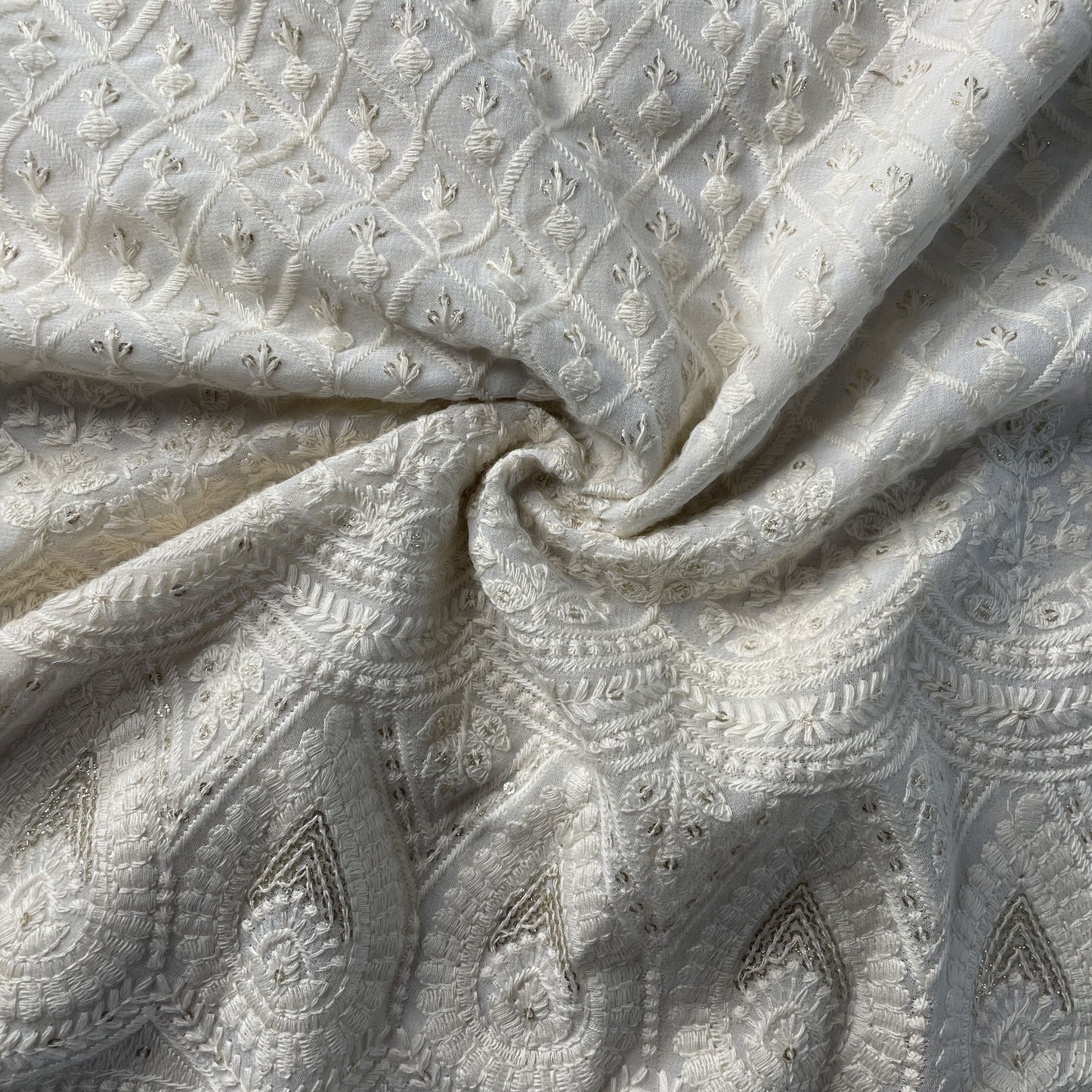- Traditional hand-embroidery from Lucknow, India.
- White threadwork on fabrics like muslin, cotton, or chiffon.
- Intricate patterns, including florals, geometric shapes, and fine detailing.
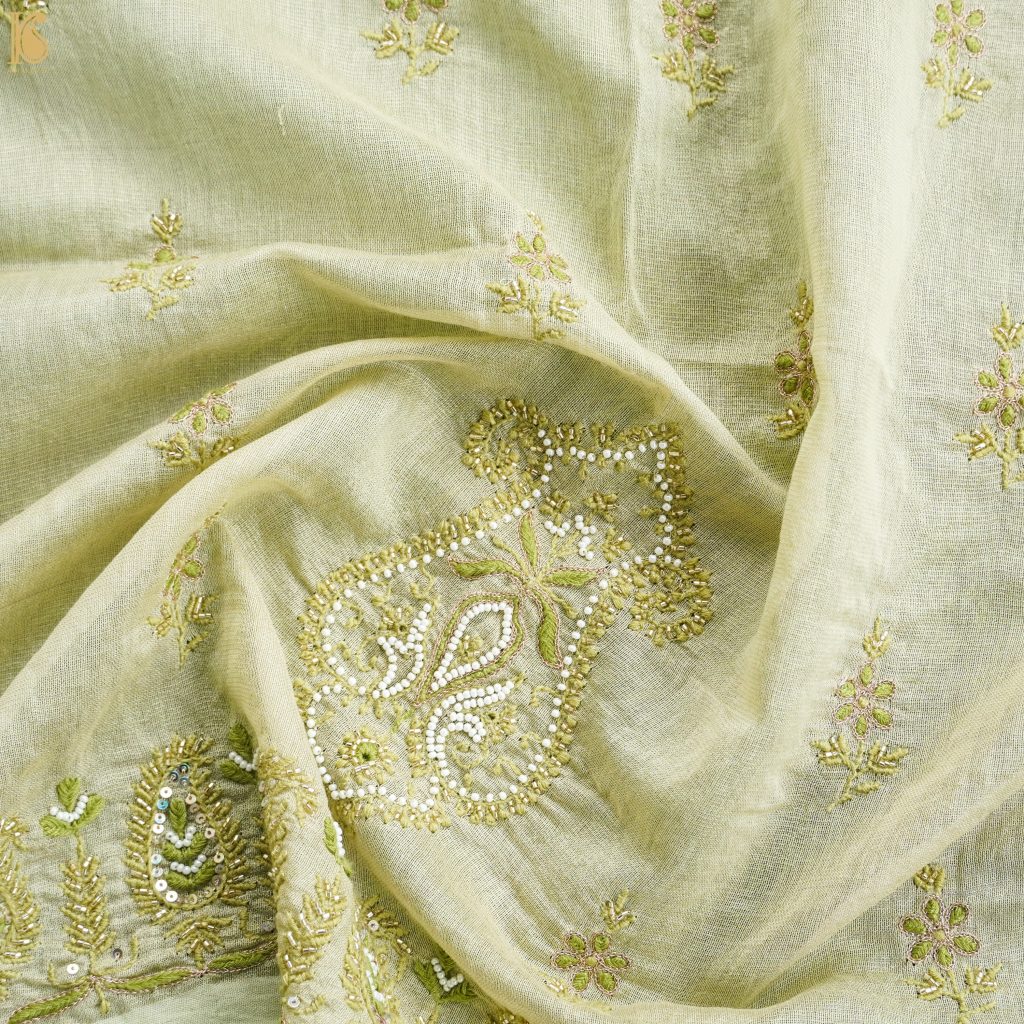
How It’s Made:
- Tari (Thread work): Basic stitch that forms the design.
- Bakhia (Shadow work): Delicate stitchwork for a shadow-like effect.
- Phanda (French Knot): Small circular knots in patterns.
- Jali (Meshwork): Net-like stitchwork.
- Murri (Raised Work): Raised shapes formed through stitching.
Pros of White Chikan Kari Fabric:
- Elegant & Timeless: Sophisticated and suitable for various occasions.
- Breathable: Lightweight fabrics make it ideal for hot climates.
- Versatile: Works for kurtas, sarees, dresses, etc.
- Cultural Heritage: Links to the rich tradition of Lucknow.
- Customizable: Can be tailored to unique designs.
Cons of White Chikan Kari Fabric:
- Delicate: Embroidery can be easily damaged.
- High Maintenance: White fabric needs careful cleaning.
- Expensive: Due to labor-intensive handcrafting.
- Limited Durability: Wears out with rough handling.
Popular Women’s Dresses Made from Chikan Kari Fabric:
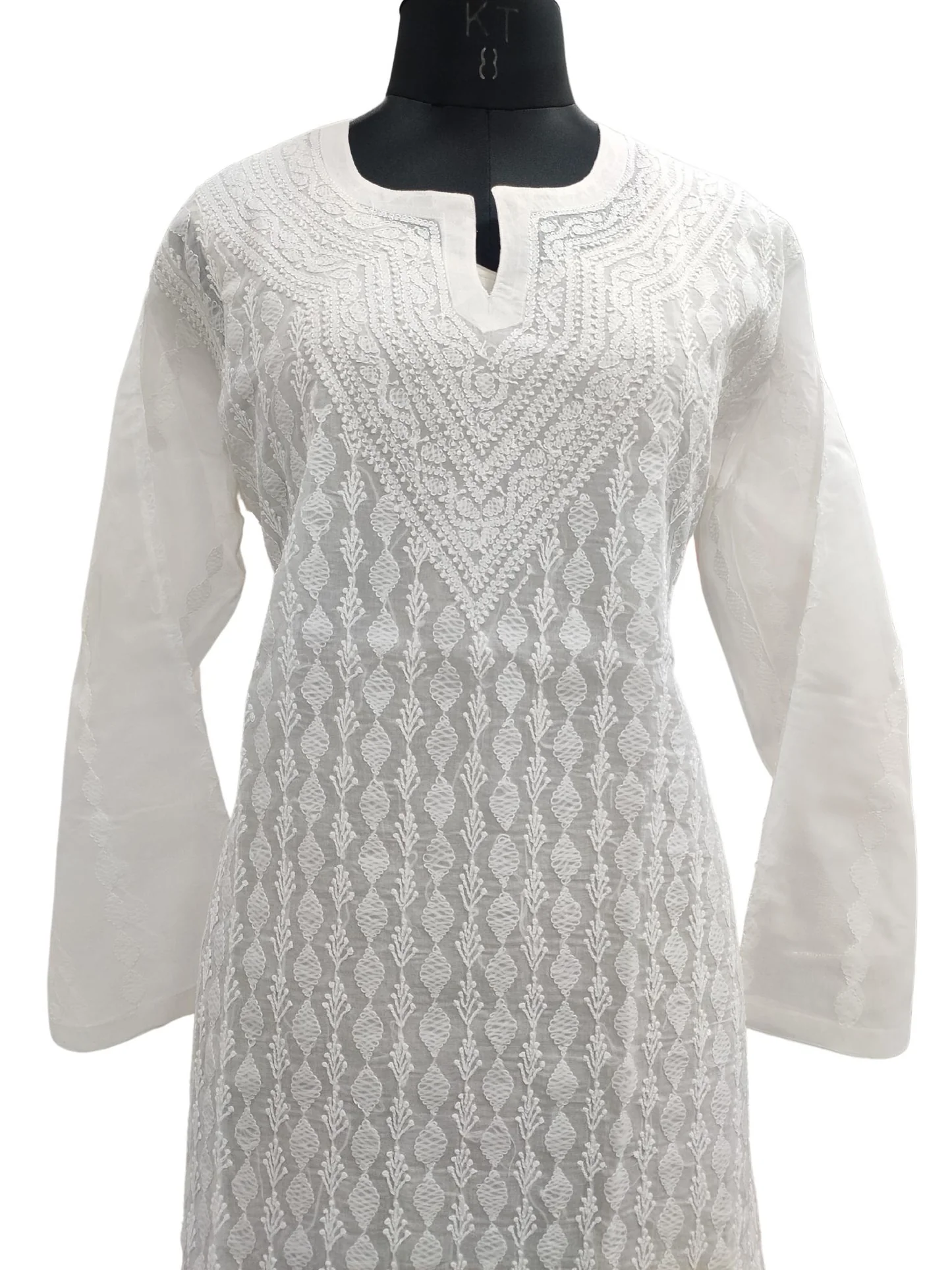
Kurtas & Kurtis: Traditional attire for daily wear and festivals.
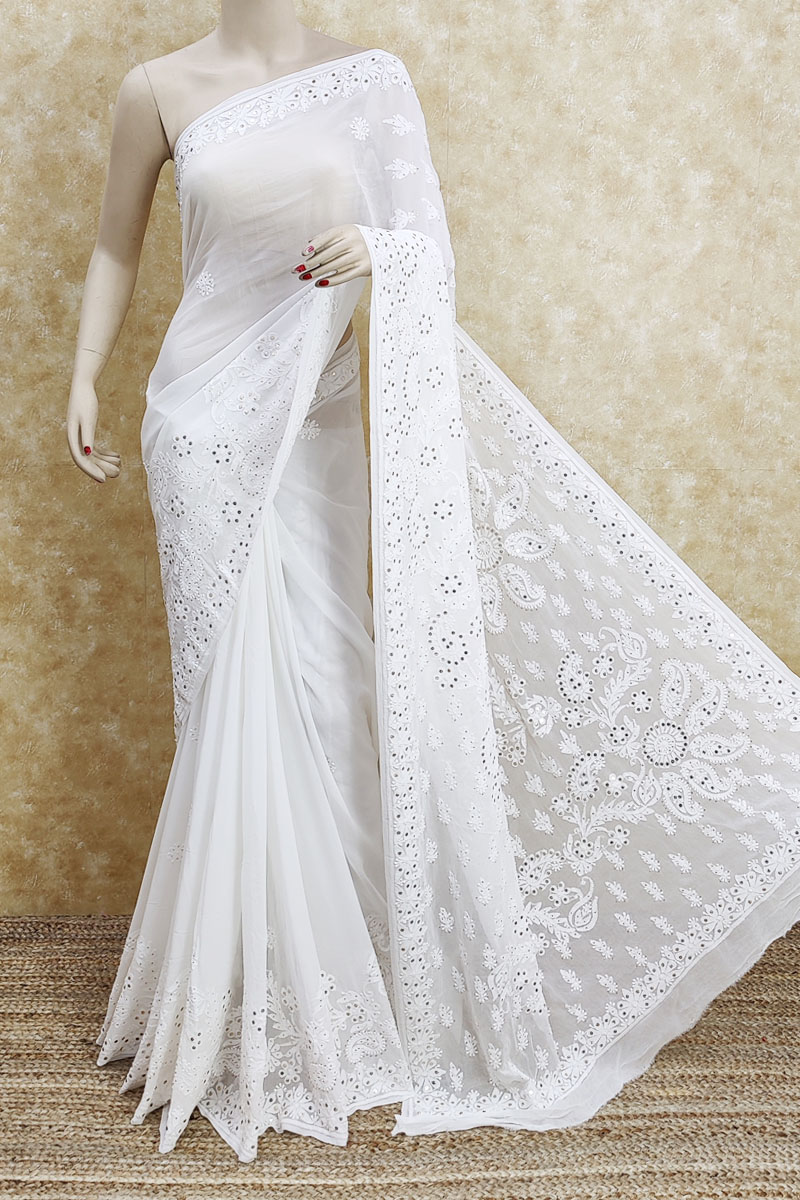
Sarees: Elegant for formal occasions and celebrations.
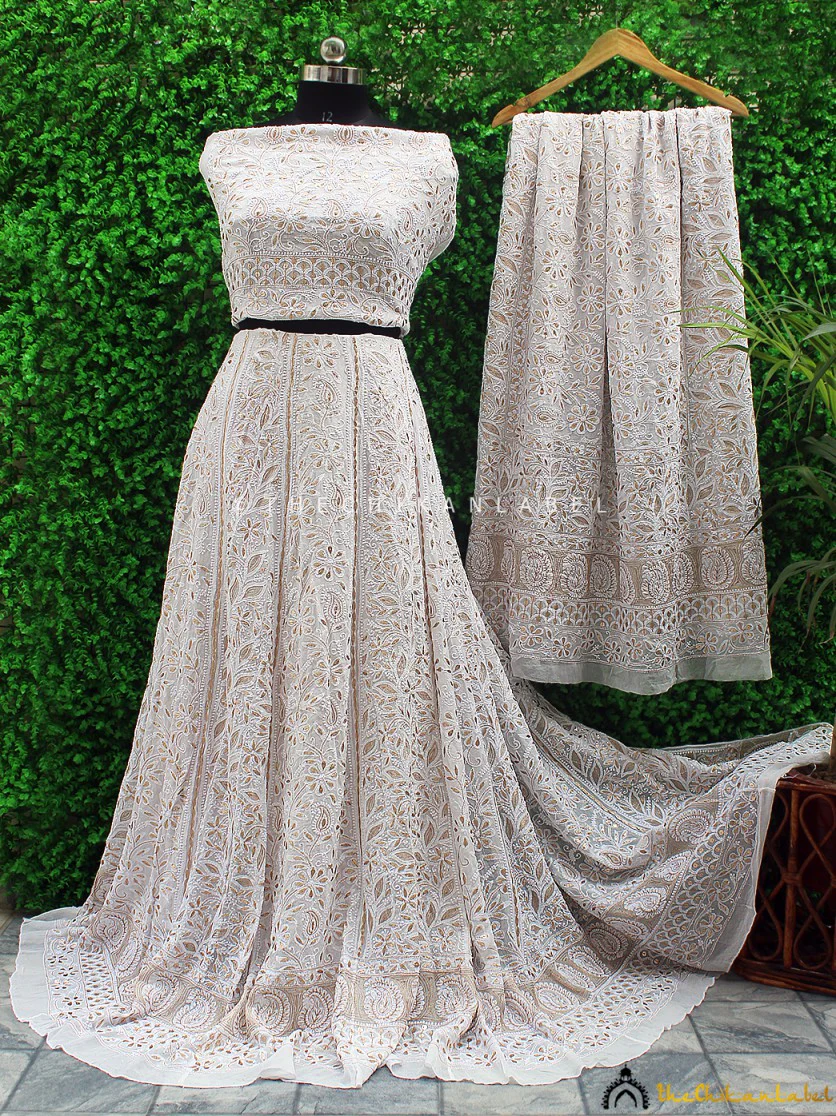
Lehengas & Anarkalis: Worn for weddings and festive events.
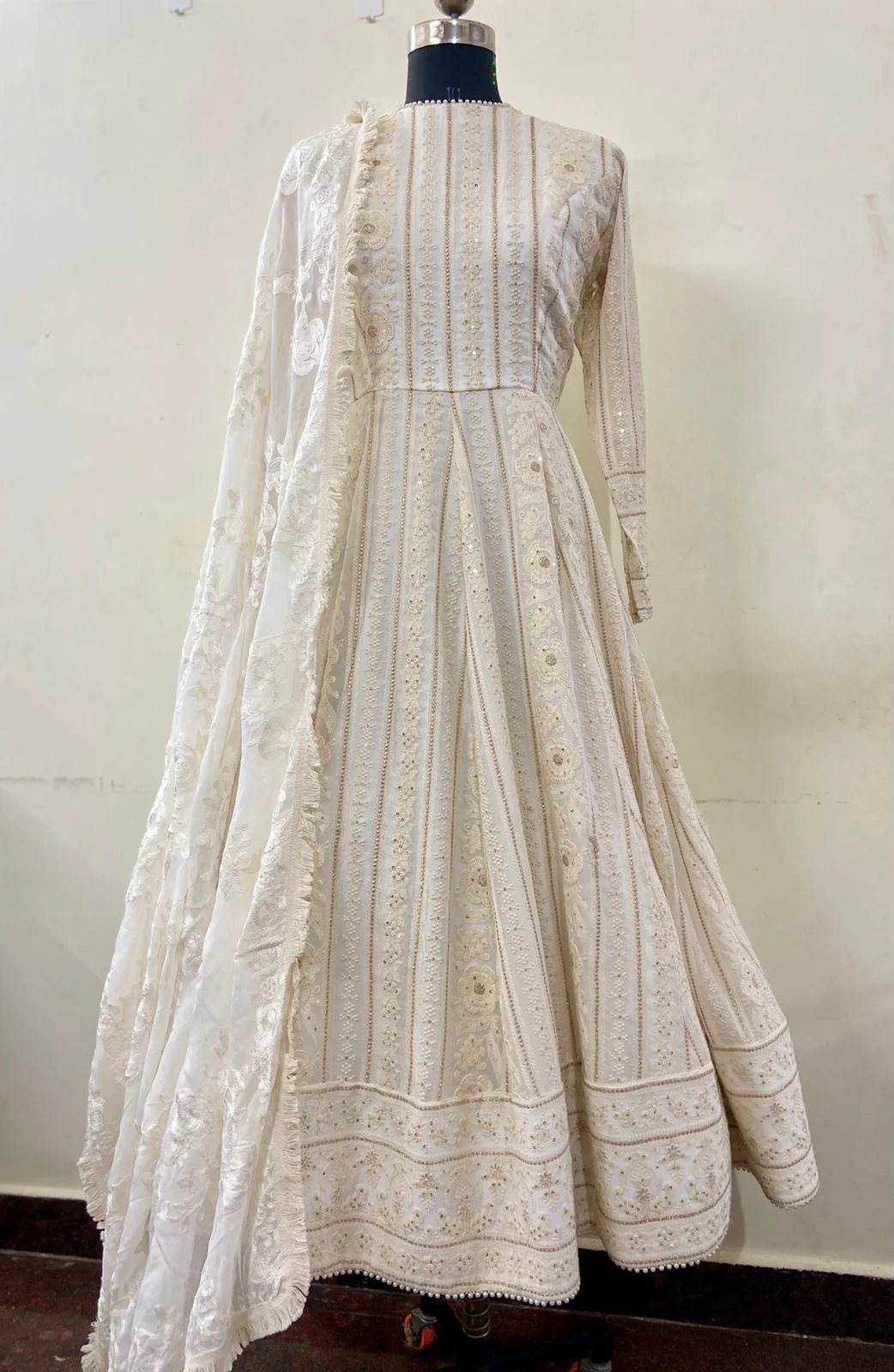
Dresses & Gowns: Fusion of traditional and Western styles.
Contemporary Trends in India:
- Fusion Styles: Modern designs like off-shoulder tops and contemporary dresses.
- Bridal Wear: Chikan Kari used in bridal lehengas and sarees with modern twists.
- Sustainability: Preference for hand-embroidered, eco-friendly fabrics.
- Celebrity Influence: Bollywood stars popularizing Chikan Kari fashion.
- Ready-to-Wear: Available in easy-to-wear collections.
- Global Appeal: International markets embracing Chikan Kari fashion.
Shop exquisite White Chikan Kari Fabrics for women in Kota, Rajasthan. Explore premium collections at Aakar Fabrics. Perfect for sarees, suits, and lehengas.
